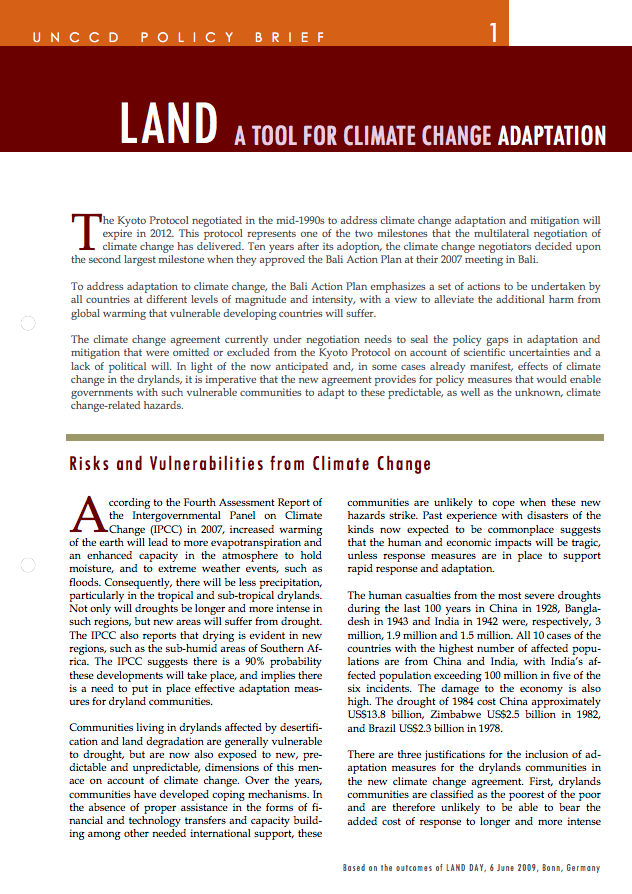Resource information
The Kyoto Protocol negotiated in the mid-1990s to address climate change adaptation and mitigation will expire in 2012. This protocol represents one of the two milestones that the multilateral negotiation of climate change has delivered. Ten years after its adoption, the climate change negotiators decided upon the second largest milestone when they approved the Bali Action Plan at their 2007 meeting in Bali.
To address adaptation to climate change, the Bali Action Plan emphasizes a set of actions to be undertaken by all countries at different levels of magnitude and intensity, with a view to alleviate the additional harm from global warming that vulnerable developing countries will suffer.
The climate change agreement currently under negotiation needs to seal the policy gaps in adaptation and mitigation that were omitted or excluded from the Kyoto Protocol on account of scientific uncertainties and a lack of political will. In light of the now anticipated and, in some cases already manifest, effects of climate change in the drylands, it is imperative that the new agreement provides for policy measures that would enable governments with such vulnerable communities to adapt to these predictable, as well as the unknown, climate change-related hazards.


